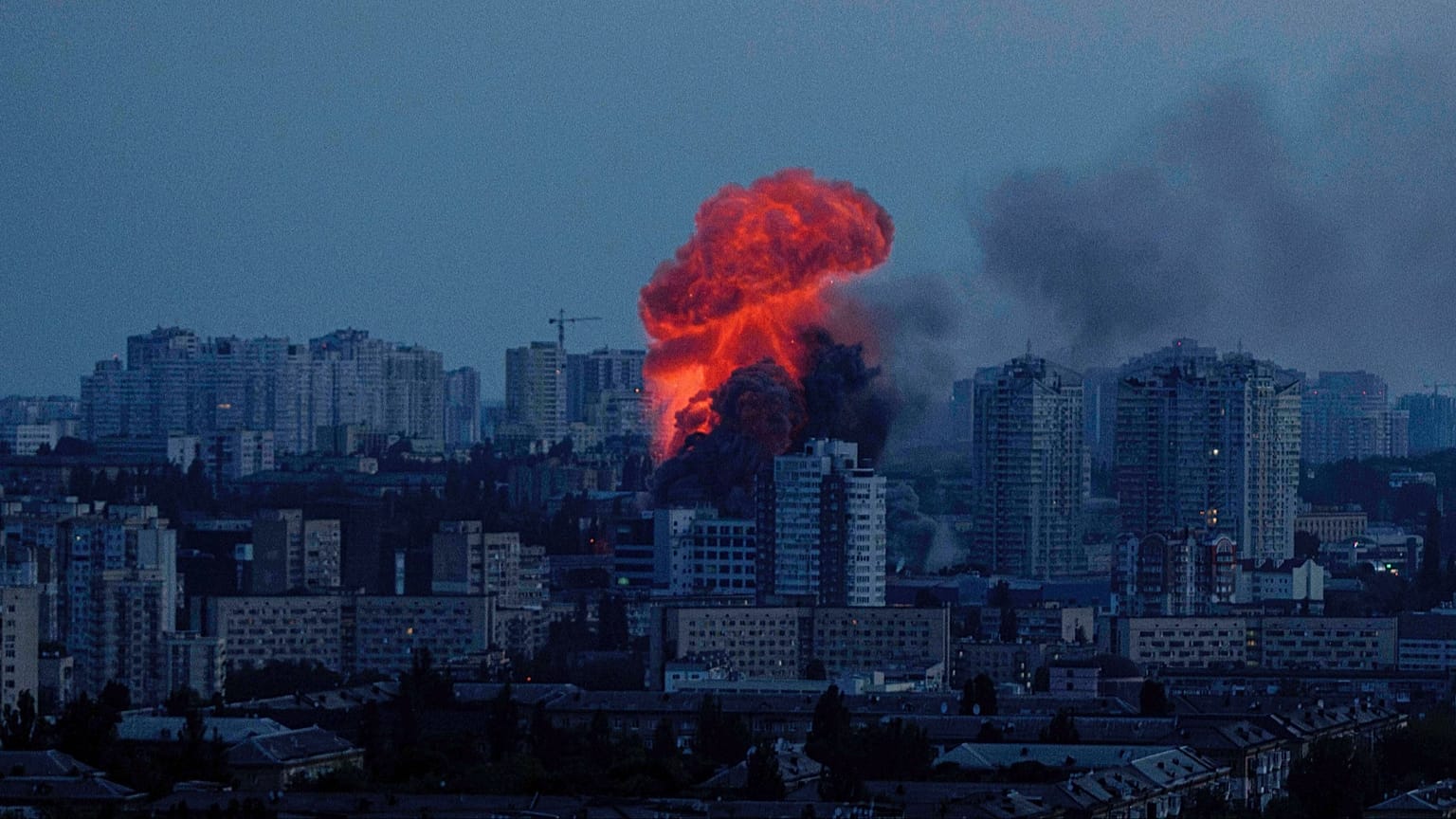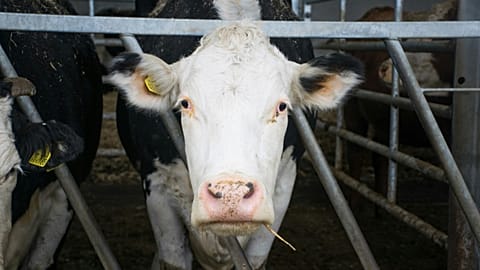Russia’s invasion of Ukraine has created global heating emissions equivalent to 236.8 million tonnes of CO².
Russia is under pressure to pay more than €37 billion to Ukraine in what would be the world’s first case of climate reparations from war.
 ADVERTISEMENT
ADVERTISEMENT
 ADVERTISEMENT
ADVERTISEMENT
The Register of Damage for Ukraine will start accepting climate claims “in the coming months”, with Ukraine planning to submit its compensation demand to the Council of Europe in early 2026.
Experts argue the “unprecedented” step will help hold Russia accountable for the impact its invasion of Ukraine has had on the global atmosphere, and set a precedent for state responsibility for climate damage from warfare.
Russia’s environmental damage to Ukraine
The Initiative on Greenhouse Gas Accounting of War (IGGAW) has calculated that Russia’s invasion of Ukraine has generated global heating emissions equivalent to 236.8 million tonnes of carbon dioxide.
Around three million hectares of Ukrainian forests have also been destroyed or damaged by war, reducing their greenhouse gas absorption capacity by 1.7 million tonnes per year.
Despite covering less than 6 per cent of the continent's land mass, Ukraine is home to a third of European biodiversity. But war has increased pressure on over a thousand of its threatened animal, plant and fungi species.
The government-funded IGGAW’s report says that all of these factors combined mean that the “social cost of carbon” from Russia’s aggression has reached a total of $43.8 billion (approximately €37.74 billion).
‘Climate is also a casualty’
“In many ways, Russia is fighting a dirty war and our climate is also a casualty,” Deputy Minister for Economy, Environment and Agriculture Pavlo Kartashov said at a COP30 side event in Belem, Brazil.
“The vast amounts of fuel burned, forests scorched, buildings destroyed, concrete and steel used, all these things are essentially ‘conflict carbon’ and have a considerable climate cost.”
Kartashov adds that while the people of Ukraine “face brutality directly”, theclimate shockwaves of Russia’s aggression will be felt “well beyond” the country’s borders and into the future.
Ukraine’s climate compensation claim
According to IGGAW’s report, military forces on both sides have used 18 million tonnes of fuel and set fire to 1.3 million hectares of fields and forests.
Hundreds ofoil and gas structures have also been destroyed, while “vast amounts” of steel and cement have been ordered to fortify the front lines.
The emissions are the equivalent of the annual emissions of Austria, Hungary, Czech Republic and Slovakia combined.
“Our meticulous documentation of the carbon emissions of Russia’s invasion of Ukraine will be the basis of Ukraine’s compensation claim,” says Lennard de Klerk, lead author of the report.
“The mechanism for this is established in international law and, once submitted, will make Ukraine the first to hold another country accountable for climate emissions from war.”
‘The cost of war can’t go unchallenged’
Ukraine’s landmark move was welcomed by the Conflict and Environment Observatory (CEOBS), which reported back in 2022 that militaries are responsible for around 5.5 per cent of global greenhouse gas emissions.
“Ukraine’s landmark action sets a global precedent for state responsibility for climate damage from warfare,” Doug Weir, director of CEOBS, tells Euronews Green.
It underlines, he adds, that “the climate cost of war can no longer go unchallenged.”
What happens next?
After the UN General Assembly decided Russia should compensate Ukraine back in 2022, the Council of Europe established a mechanism for this titled the Register of Damage for Ukraine.
Ukraine’s claim is supported by a historic ruling that was delivered to the International Court of Justice in July this year. It affirmed that a “clean, healthy and sustainable environment” is a human right, just like access to water, food and housing.
The Register of Damage for Ukraine also includes more than 9,700 personal claims for incidents such as involuntary internal displacement, forced labour, damage or destruction of residential property and loss of housing or residence.

















